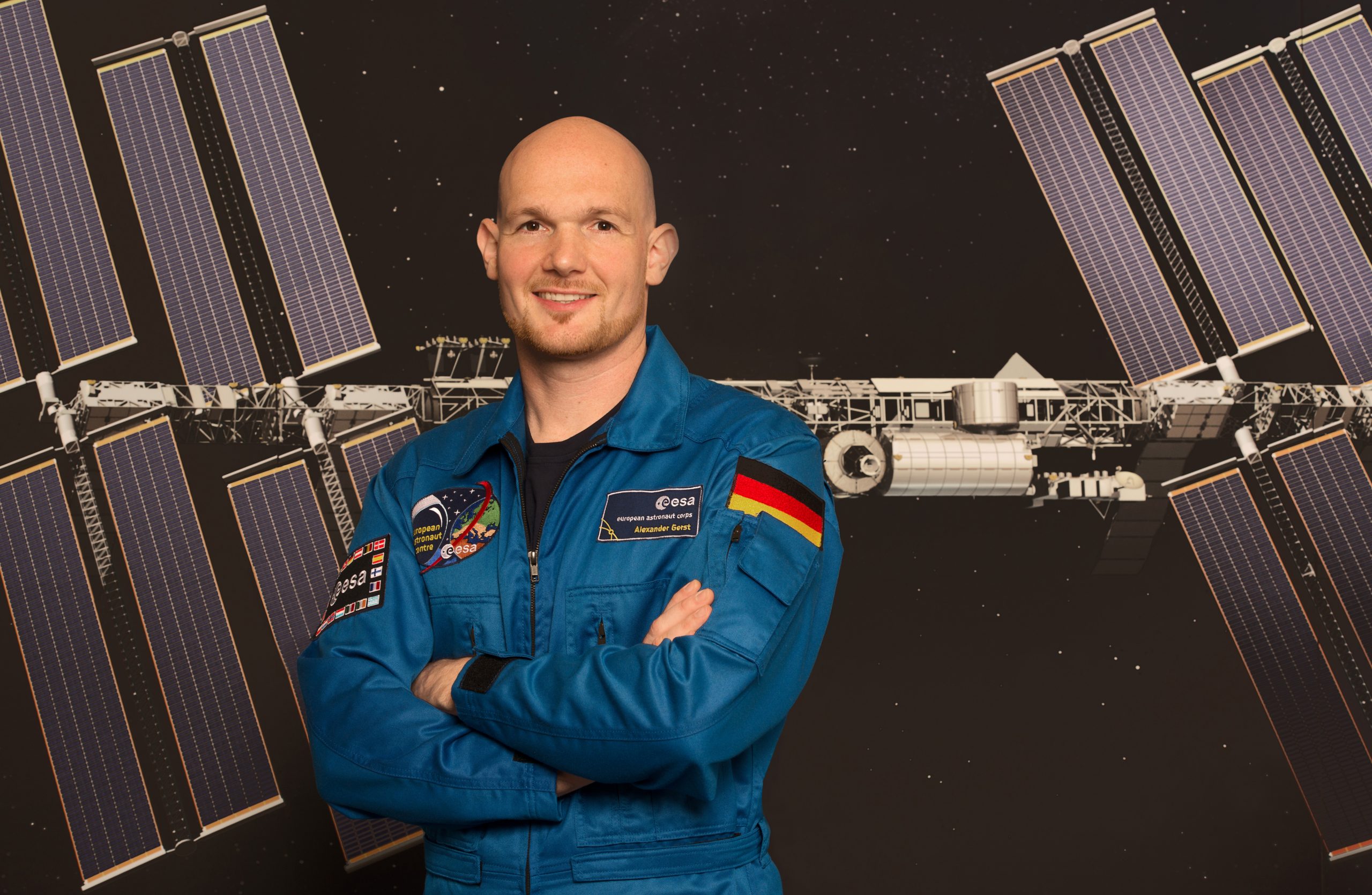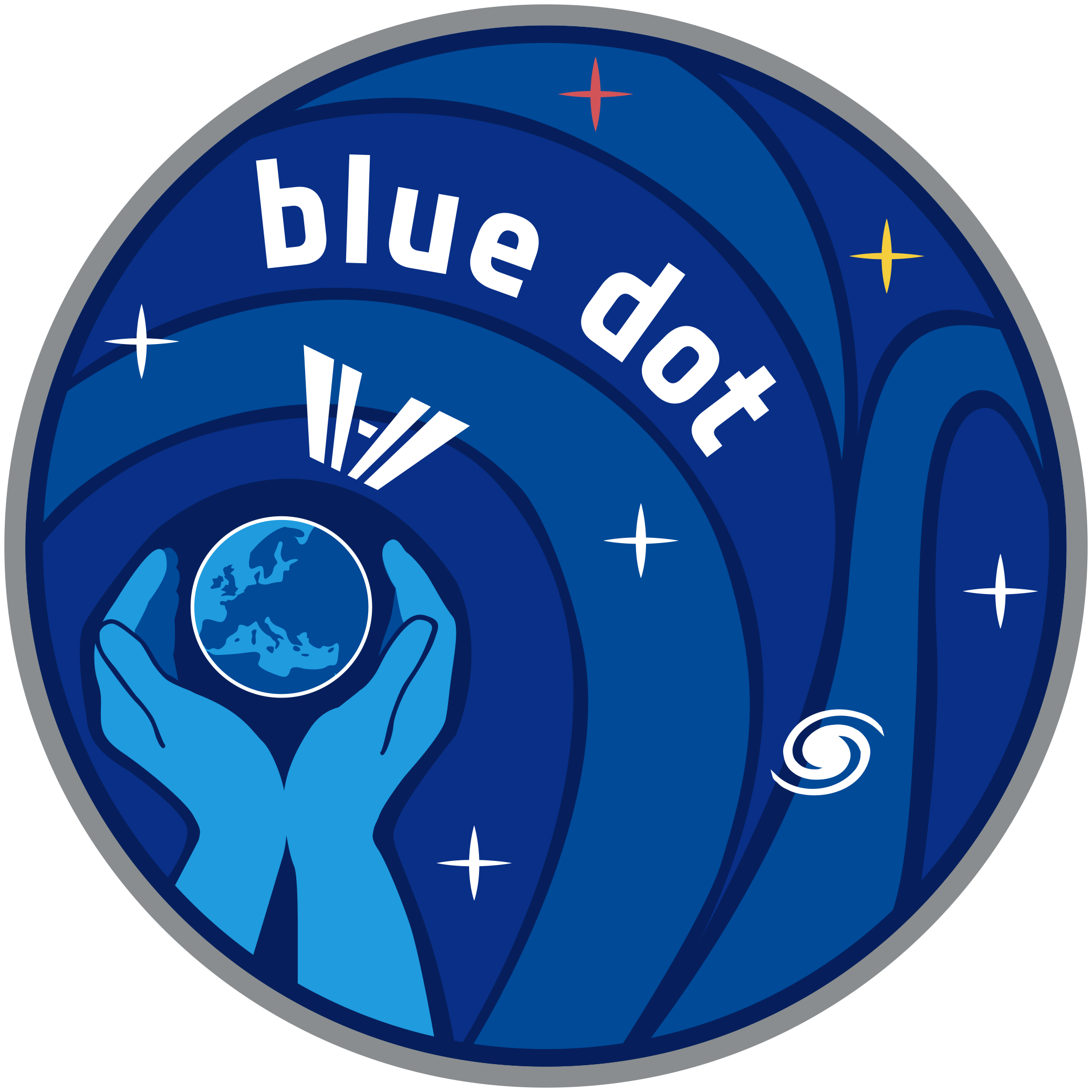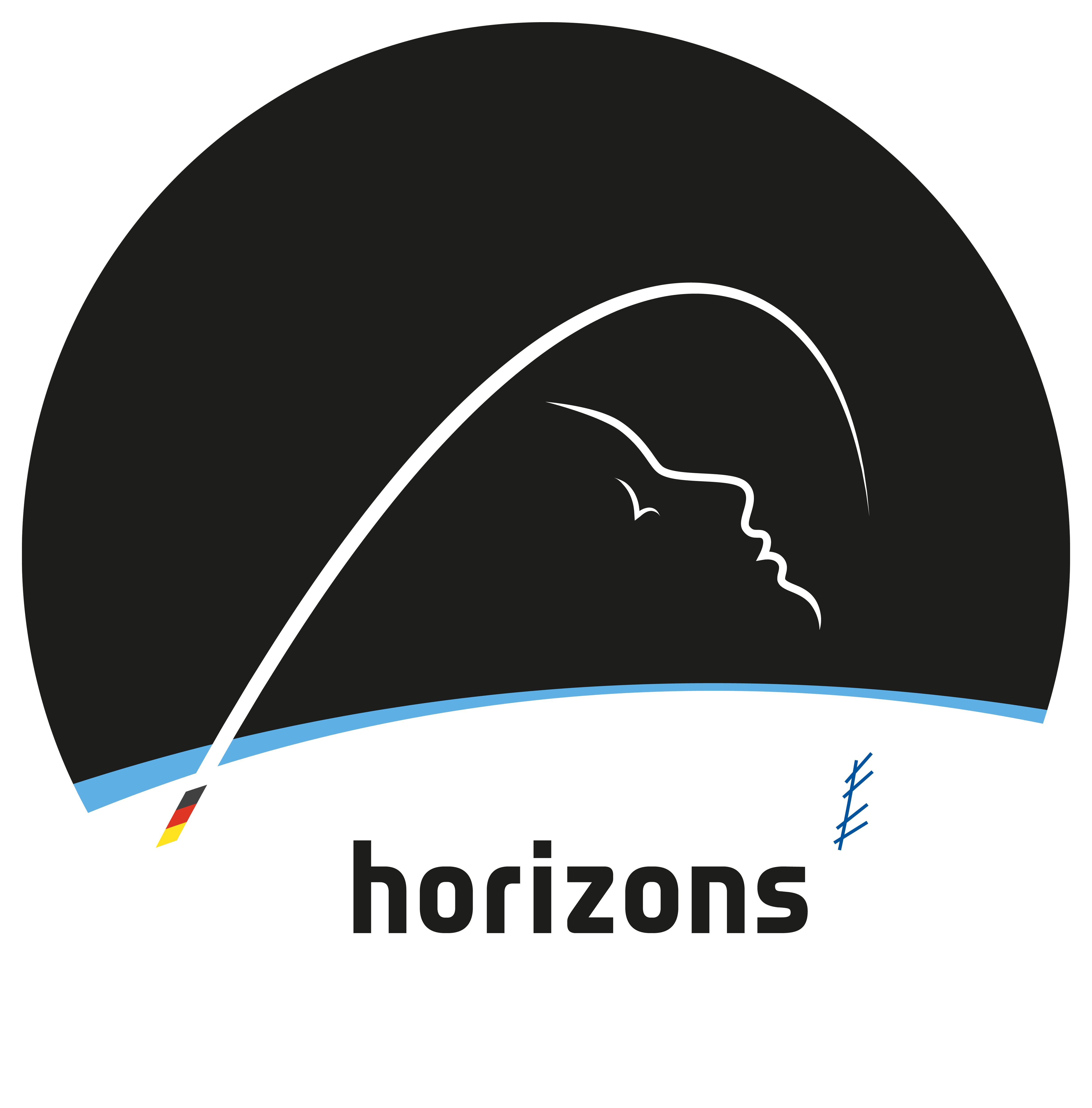Alexander Gerst, born on 3 May 1976 in Künzelsau, Germany, is a German ESA astronaut and geophysicist. He was one of 8,413 applicants who applied to the ESA astronaut corps in 2008 and has been a member of the ESA astronaut corps since 2009.
Gerst studied geophysics at the University of Karlsruhe, geosciences in New Zealand and earned his doctorate in volcanology at the University of Hamburg in 2010. While studying, he worked as a volcanologist at the University of Hamburg’s Institute of Geophysics and was involved in several research expeditions on every continent.
In 2009, Gerst was selected as an astronaut and began his basic astronaut training at the European Astronaut Center in Cologne. On 22 November 2010, upon successful completion of his training, he received his official astronaut certificate from ESA.
In September 2014, Gerst flew on his first mission to the International Space Station (ISS). Gerst was part of Expeditions 40/41 during his ‘Blue Dot’ mission and spent a total of 166 days in space, during which he conducted hundreds of experiments and worked closely with his colleagues from different countries.
His second mission, ‘Horizons’, began in June 2018. Gerst was on the ISS for an additional 197 days as part of Expeditions 56/57 and increased his cumulative time in space to about a year. In addition to his role as a flight engineer, he trained as a pilot for the Soyuz spacecraft. During the Blue Dot mission, he became the first German and second European ever to command the International Space Station.
After his return to Earth in December 2018, in addition to his astronaut training activities, Gerst began developing strategies at ESA’s European Space Research and Technology Centre (ESTEC) in the Netherlands for ESA member states to participate in missions in Earth’s orbit after the discontinuation of the ISS.
In 2022, Gerst supported the selection of a new group of European astronauts. The ESA astronaut class of 2022 began their basic training at the European Astronaut Center in Cologne in April 2023.
Since March 2023, Gerst has led the Astronaut Operations department at the European Astronaut Center. In addition to leading the new astronaut group, his responsibilities include providing logistical and operational support for future ISS and lunar missions. As a geophysicist, he is particularly interested in the operational and scientific aspects of future lunar missions.










